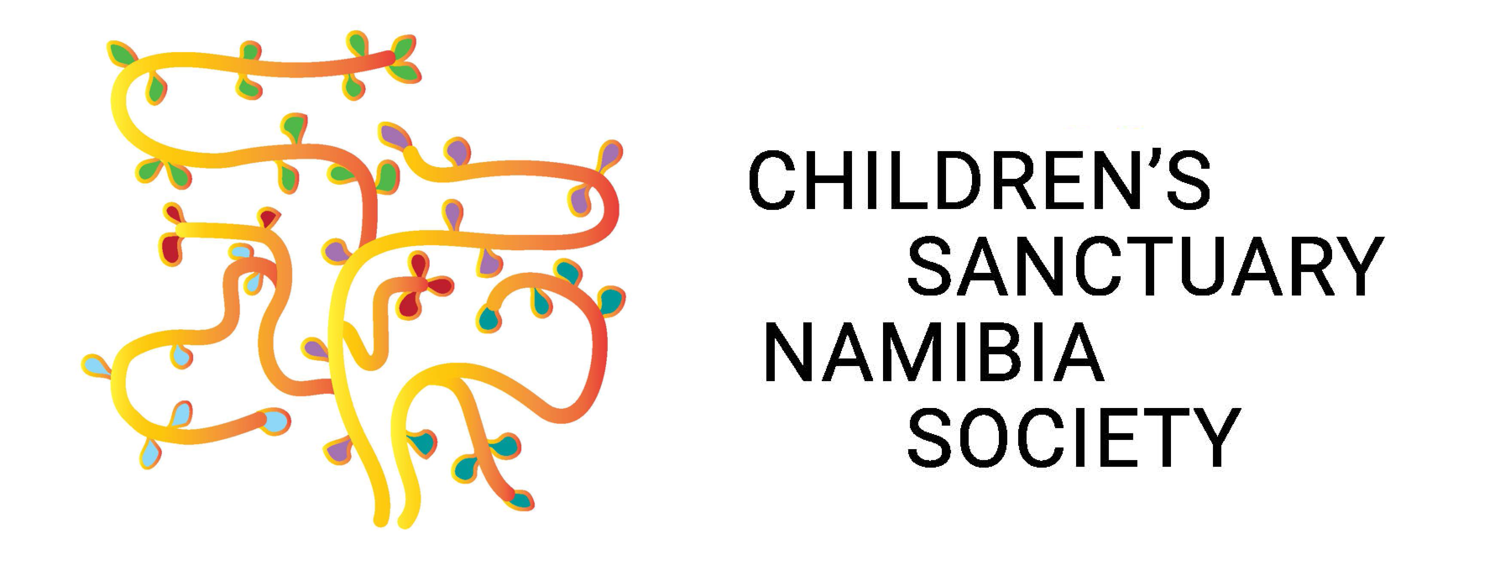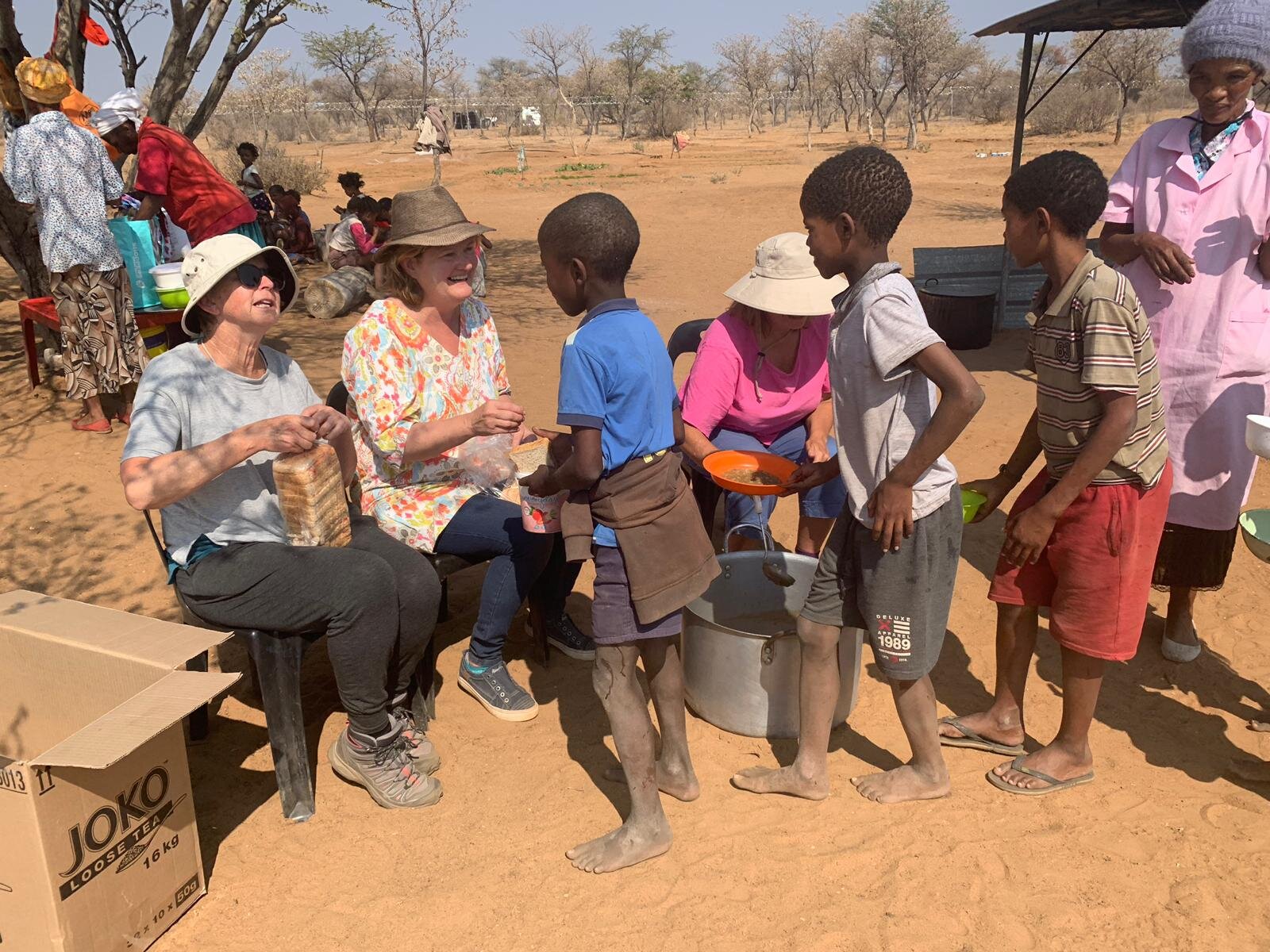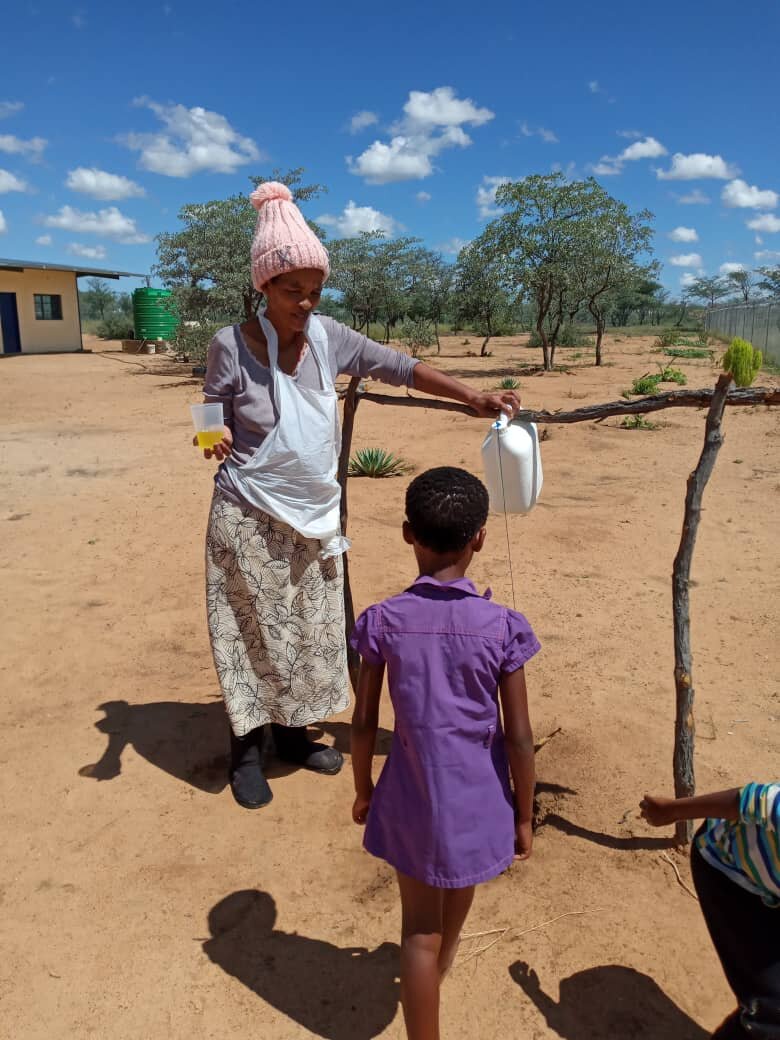Dear CSNS Supporters and Donors,
We joyfully share with you the exciting news that 16 children (8 boys, 8 girls) have now moved into the Mother House on the Sanctuary land! It was a gradual move-in to help the children adjust from the lives they have known to a new life with many unknowns; having two dedicated caregivers, a place they can call their own, the certainty of having their material and emotional needs met, relationships with other children who will become to them like siblings.
This is a tremendous achievement, made possible by the material and moral support provided by yourselves, our valued donors, and volunteers. Your contributions helped this dream become reality! Our heartfelt thanks to each of you!
CSN Board member, Lazarus, Principal of Omaruru Childrens’ Haven, was authorized by the Ministry of Child Welfare to choose the children from the 75 most vulnerable, due to his extensive knowledge of guidelines for residential childcare facilities and excellent relationship with the Ministry. Ministry Social Workers will make an onsite visit in February.
Girls’ dormitory room.
Lazarus is also helping select and hire a Manager for the Mother House who will guide its development and work towards our longer-term vision of helping the Drimiopsis community meet the needs of all its vulnerable children.
For this new year of 2022 our goals are:
1) To raise funds to pay the operational costs for the Mother House, including: a) wages; salaries for the manager, two house mothers, a part-time housemother, a gardener/handyman, security guard/handyman and gardeners assistant; b) meals; 3 x/day, 7 days a week for 14 children and 2 adults
2) To continue to feed 57 vulnerable children 3 meals weekly through the Soup Kitchen and to pay honoraria to 7 Soup Kitchen volunteers
3) To fund the kindergarten food program providing a meal, five days a week, for 44 children
4) To further develop the garden to augment the children’s diet; raise money to make the garden self-sustainable by selling excess produce to the community; purchase shade-netting and fruit trees
5) Support the development of the Mother House program and its designation as a residential childcare facility through training and other resources.
To achieve the above goals, our 2022 fundraising target is $40,000 Canadian.
Thank you for being such an important part of this transformative process that is bringing such joy for the people of Drimiopsis and their most needy little ones!
Sincerely,
Helge, Terry, Diane, Betty, Judy and Yvonne
Gardener/Handyman Zuma painting a portion of the children’s playground funded by CSNS. Gardener’s Assistant, Johannes is in the background.





















































